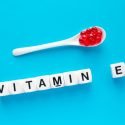Runners Nutrition Plan and Menu
Nothing can be more important to a runner than good nutrition.
Running requires very specific nutritional requirements that have to be met, especially during training.
How important is getting the best nutrition plan for runners?
What diet rules ought to be followed?
How can you tailor your diet plan according to the kind of training you are doing?
Good Nutrition and Running Performance
Experts in the field of nutrition explain how lacking certain vitamins and minerals can negatively affect a runner’s performance.
Carbohydrates
Lack of carbohydrates reduces the energy levels forces the body to use protein as energy (1).
When this happens, there is little protein available for other vital functions such as muscle recovery which are equally important.
One study was conducted to examine the effect of carbohydrates intake on muscle glycogen resynthesis after running (2).
A diet composed of complex carbohydrates resulted in higher muscle glycogen levels 48 hours after the run.
Protein
Additional evidence shows that tailoring the amount, type, and timing of protein intake can aid in post-exercise recovery (3).
High protein intake may help optimize muscle glycogen resynthesis to enhance performance.
Nitrate
Another study found the connection between eating beets which are rich in nitrates and improving running performance (4).
In the study, runners who ate 200 grams of baked beets 75 minutes before exercise had better performance than those who didn’t consume nitrate-rich foods.
Caffeine
The effect of caffeine on short-term running performance was examined by a study performed nine trained male runners.
The runners who had taken caffeine had a higher maximum accumulated oxygen deficit.
It was concluded that caffeine could enhance physical performance for short term running (5).
Vitamin C
A study carried out on ultramarathon runners showed that vitamin C supplementation reduced the risk of developing upper respiratory tract infections which are common in marathon runners (6).
Fourteen days after the race, only 33% of the group given vitamin C supplements reported URT symptoms.
This was far lower than the 68% of from the placebo group.
In addition, symptoms of URT in the supplemented group was greatly reduced.
Vitamin D
Vitamin D deficiency leads to a higher risk of stress fractures because of the decrease in bone density.
As this research shows, the kind of food you choose to eat as a runner can either boost or hinder your running performance.
So what kind of food should you eat?
We’ll give you a sample meal plan for a while but let’s start with the basic nutrition rules every runner should follow.
Nutrition Rules for Every Runner
Every runner needs the same kind of nutrition as an average person but may need to increase the number of nutrients to help improve their performance.
Here are some general rules:
Carbohydrates
Consuming carbs before, during or after a workout session gives you a boost of glycogen (7).
Glycogen is known to aid in endurance helping you workout for a longer period.
Eating carbohydrates before doing your workout is therefore recommended.
During your training, eating carbohydrates can give you additional energy (8).
When you eat food containing carbohydrates, it is broken down into sugar.
When this enters the blood, insulin is produced and the cells are prompted to absorb more sugar for energy.
Complex carbs are good for fueling your body for a run.
They include vegetables, whole grains, and legumes.
Simple carbs on the other hands give quick energy boosts and can be found in sugars like glucose, maple syrup and the like.
These are good sources of energy if you are getting low on energy during a marathon.
A number of carbs you need depend on your activity level.
The recommended rule to follow per body weight is:
- Highly intense training (more than 4 hours a day): 4.5-6 grams per pound
- Medium training (1 hour daily): 2.3 – 3.2 grams per pound
- Low training (less than an hour): 1.3 – 2.3 grams per pound
Proteins
Proteins are another essential element to include in your diet plan.
This nutrient provides 4 calories per gram and is responsible for many activities of the body.
About 17% of your entire body weight is from protein.
Protein also plays an important role in repairing cells, blood clotting and hormone production.
Major body functions of proteins include building, strengthening and replacing tissue (9).
Some proteins are hormonal including insulin while others are structural such as collagen.
They can also be used in carrying nutrients to the body including hemoglobin.
When we eat food that contains amino acids, the body can create proteins to use in various functions.
The main sources of protein are eggs, chicken, pork, and beef.
You can also get protein from whey, fish, and soy and whole nuts and legumes.
For runners, the amount of protein needed depends on the intensity and duration of your runs.
- If you run an hour a day, you require 0.6 grams per pound of weight. This increases the longer you run.
- If you are training for a marathon, you can start with a protein intake of 1.2 grams and increase this to 1.5 grams per body weight on the days you do intense training.
This is, of course, different if you are want to run a 7-minute mile.
To find out what works for you, start with the minimum requirement and slowly increase until you feel the positive effect on your workout routine.
Fat
Contrary to common belief, fat is an important source of energy, especially for runners.
This was tested in a study published in the Journal of the International Society of Sports Nutrition.
In the study female runners who got 30% of their calories from fat had lower injury occurrence than those who ate less fat (10).
This is attributed to the fact that fat should provide 20 – 35% of daily energy to the runners with lower fat intake probably did not meet their calorie intake.
Saturated fat and monosaturated fat such as those found in avocados and olives are also good sources of Vitamin D and K2.
This makes them valuable in increasing bone density and preventing osteopetrosis.
In addition, regular intake of healthy fat can contribute to increasing muscle mass and inhibiting muscle breakdown.
Omega-3 fatty acids also support the function of the thyroid which is related to body fat regulation.
Among the top ten recommended sources of healthy fat are: avocados, dark chocolate, cheese, fatty fish, eggs, nuts, chia seeds, coconut oil, virgin oil, and yogurt.
Micronutrients
Micronutrients are defined as such because your body requires a very small amount to function (11).
They are also called vitamins and minerals.
They include sodium, iodine, copper and zinc and vitamins such as C, K, D, E and the like.
- Sodium helps maintain the right balance of fluids in your body and also contributes to having a normal pH level.
- Iodine is useful in metabolism and also helps to produce energy because of its relationship with the thyroid gland.
- Magnesium is necessary for converting glucose into energy while manganese helps in bone formation.
- Chloride, on the other hand, regulates water in your cells while the iron is essential in red blood cell production.
To make sure you get enough of these vitamins and minerals, include these foods in your diet plan: orange juice, spinach, bananas, sardines, peppers, broccoli, apricots, cashews, yogurt, almonds.
Sample Diet Plan
As we have understood, the amount of carbs, protein, and fats that you require depends on the intensity of your workout.
To give you an idea of how your nutrition plan should look like, here are three meal plans that can be used as templates for different training levels (12).
For Easy/Low-Intensity Training
On these days, you should be thinking about a low carb high protein diet plan.
This is because of proteins aid in growth and repair of muscle tissue while carbs are mainly to help you maintain high energy levels during training.
Breakfast
- Scrambled eggs
- Greek salad omelet
- Ricotta, tomato, spinach frittata
Lunch
- Quinoa or lentil salad
- Grilled chicken
- Greek salad
- Fruity lamb tagine
Dinner
- Thai chicken
- Marinated vegetables
- Salmon
- Mackerel
For Moderate Training
For the days on which you train for up to an hour a day, you should aim for a combination of moderate carbs and proteins.
This is necessary in order to maintain your energy levels during your training.
Low GI carbs are ideal and a source of protein for each meal should also be included.
Breakfast
- Scrambled egg muffin
- Yogurt porridge topped with walnuts
- Granola with apricots
Lunch
- Japanese beef bowl
- Smoked salmon and avocado
- Chicken quinoa
- Soba noodles
Dinner
- Orange salad
- Smoked mackerel
- Vegetable bowl
- Butternut squash salad
- Tuna skewers
For Intense Training
On highly intense training days, aim for increased carbohydrates in your diet plan.
Both high GI and low GI carbs should be included throughout your day.
Lower your protein intake and fat intake in order to support your body’s need for carbs.
Also, increase the number of fluids you drink to make up for the loss during your workout.
Breakfast
- Granola
- Blueberry bircher pots
- Buckwheat pancakes
Lunch
- Banana yogurt pots
- Cinnamon granola bars
- Blueberry and banana muffins
Dinner
- Chili bean wraps
- Falafel burgers
- Chicken and broccoli pasta
This is just a sample plan to help you understand how your nutrition plan should look like depending on the intensity of your workout.
As long as you keep the general rules in mind, you can easily come up with your own menu.
Nutrition FAQs
- What is the recommended distribution of nutrients per day for runners?
It is the same as the ordinary people: (13)
- Carbs 45-65% of daily energy
- Protein 10-35% of daily energy
- Fat 20-23% of daily energy
- Can train on an empty stomach help boost endurance?
It has been suggested that training on an empty stomach helps train your muscles to perform better on low fuel (14).
Although this may be true, unless you are well fueled for your high-intensity workouts, your performance will suffer.
- When should I do a pre-race carb loading?
Pre-race carb loading is only useful if you are running long distances such as during a marathon.
The recommended way to do this is to eat those carbs at least three to four days before the race.
It is also recommended that you increase your carb intake gradually adding a few grams each meal.
- How important is eating high-carb foods after a race?
Carbohydrates help restore the levels of glycogen in your body which helps you recover faster and be ready for another race sooner.
It is recommended that you start eating carbohydrates 30 minutes opting for fruit first and then bulkier carbs such as bread after four hours.
- What dose of caffeine can help boost performance?
A suggested dose is 12oz per hour of training.
This may vary depending on your personal reaction towards caffeine.
Taking too much caffeine may backfire and instead cause dehydration.
Conclusion
Understanding how to tailor your nutrition plan to fit your personal workout needs is one of the most important steps in improving your performance.
Carefully examine your intake of carbs, protein, and fat and make sure that you also have ample micronutrients.
Then, create your own plan and tailor it as you change your training.
How did you find this article?
We’d love to hear what nutrition plan works for you so feel free to comment below.
Also, remember to share this article with other running enthusiasts.
FDA Compliance
The information on this website has not been evaluated by the Food & Drug Administration or any other medical body. We do not aim to diagnose, treat, cure or prevent any illness or disease. Information is shared for educational purposes only. You must consult your doctor before acting on any content on this website, especially if you are pregnant, nursing, taking medication, or have a medical condition.
HOW WOULD YOU RATE THIS ARTICLE?







I am a vegan. How can I get all needed nutrients without quitting my diet?
I’m a beginner in running and this article is perfect for me! Thanks!